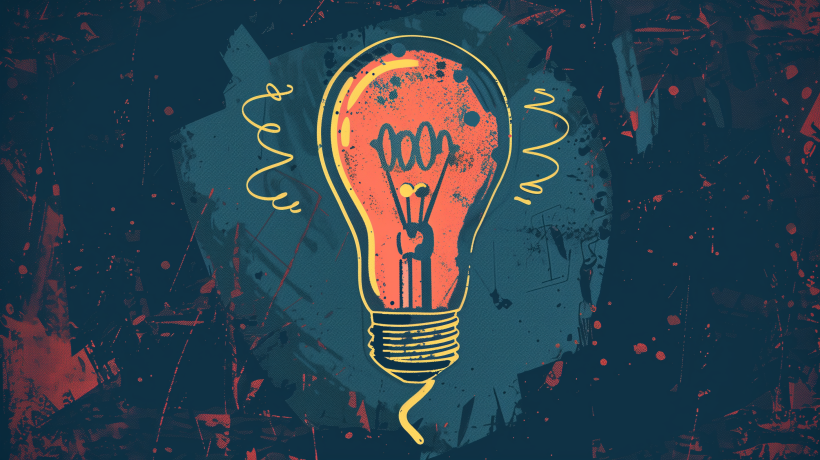Change is one of the few certainties in life, yet the pace of change is highly variable. Electronic devices, such as computers, phones, cameras and televisions, can become older models in just weeks or months. Scientific and medical advances can be so rapid and voluminous that they are measured in hours and days. New research describing advances is published hundreds of times an hour. At this pace, much of what is taught in the first year of medical school can be outdated by the time students graduate.
Most health care providers are unaware how much of their current medical practice is based on knowledge from years or even decades earlier. The only way to discover that knowledge is outdated is to recognize and acquire new knowledge. Health care providers know that medical advances continue to accelerate, yet the new information is overwhelming in breadth and volume. An even greater challenge is having the wisdom to recognize when knowledge is no longer of value. You may have great confidence in your CPA or estate lawyer, until you find out after an audit or probate that their advice was out of date—at great financial cost to you. If your health care provider is not offering care based on the latest knowledge, the expense will be measured beyond financial costs alone.

Updating and Advancing Knowledge Is a Continual Process
Most of us have the benefit of an education that would have been unobtainable a few generations ago and access to continued learning has become nearly universal in our society. When we went through our formal education during the school age years, much of the knowledge we were taught had recently been discovered. Likewise, the next generation was taught newly discovered information that is more correct and complete. Updating, correcting and advancing knowledge is an ongoing process, and it can occur at an incremental pace in disciplines such as language and literature. In other fields, especially the sciences, the exponential growth of research findings leads to the continuous and rapid revision of current knowledge.
Beliefs vs. Truths and Knowledge vs. Wisdom
Understanding the relationship between a belief and the truth is the key to distinguishing theory from knowledge. While beliefs have value, many beliefs are eventually found to be false. When a belief is confirmed to be factually accurate, it is then reclassified as knowledge. When a belief cannot be proven true, it will either be retained as a belief or discarded. What is labeled as knowledge is still subject to challenge, revision or correction. However, when knowledge is subsequently reclassified as incorrect, it can be even more difficult to displace than a false belief.
A higher level of truth than knowledge is wisdom, which arises from the experience of the practical application of knowledge. A clear yet humorous example of the distinction between knowledge and wisdom is the tomato. Knowledge is knowing that, botanically, a tomato is properly classified as a fruit, not as a vegetable. Wisdom is knowing not to put it in a fruit salad.

Exponential Advances in Medicine Can Be Overwhelming
Advances in medicine and the life sciences are moving at an exponential pace. There are over one million acknowledged research publications each year in the biomedical sciences alone. Universities, research centers and governments all act as the incubators for the advancement and adoption of knowledge, technologies and innovations. While we may recognize that knowledge is moving at an exponential rate, many of us are not aware of its incredible power. An example of exponential growth is the value of a single penny. When that penny doubles daily, it accrues a value of over five million dollars in just 30 days!
It is a frequent occurrence that an advance in one field may initiate or accelerate an unanticipated breakthrough in an unrelated discipline. The sophisticated research in the fields of chemistry, physics, engineering, computing, economics and many others have contributed to a vast number of breakthroughs in medicine and health. Entirely new fields of knowledge that are revolutionizing the life sciences include clinical informatics, digital therapeutics, diagnostic biotechnology, regenerative medicine, nanotechnology, epigenetics, genomics and gene editing, with significantly more on the horizon. Many cancers that were invariably fatal in the past are now being controlled and cured.
In spite of its great value and the best of intentions, this flood of transformative information is overwhelming to many health care providers. By necessity they must rely on others to filter this information, and only when it has been validated by clinical research and adopted by the majority of providers does it become the standard of care. All too often even the most expert professionals at the cutting edge of science are not aware of the breakthroughs of competing researchers until publication a year or more after the fact. The scientific process then requires that an important finding be replicated and confirmed, which often takes additional months to years. It is even more challenging to adopt advances if it requires the recognition and admission that a previous belief, or what was once accepted as knowledge, was incorrect and must be discarded.
Delayed Access to the Best Medical Knowledge Has Potentially Life-Threatening Consequences
The vast majority of health care providers are too often many years behind in applying validated advances. Delayed access to the most current and advanced medical knowledge can potentially have life-threatening consequences. The selection of a knowledgeable and up-to-date health care provider, and access to a credible resource of current health care information, are essential for optimal medical care.
Self-advocacy or retaining a professional advocate, knowledge of proactive health benefits and lifestyle, and awareness of and access to advanced knowledge and technology are essential components of optimal health care and well-being that can dramatically influence longevity and vitality. While seeking and securing quality health care with expert consultants, advanced diagnostic technology and optimal therapy can be time consuming and costly, the return on investment in health far exceeds any return on investment in finance.
Acquiring the correct medical team with access to the best knowledge and utilization of the highest wisdom will provide the best return on your personal health investment. The true worth of your life is measured by optimal health and not just wealth.
Joseph B. Weiss, M.D. FACP, FACG, AGAF, is a physician and Clinical Professor of Medicine in the Division of Gastroenterology, Department of Medicine, at the University of California, San Diego. Double Board Certified in Internal Medicine and Gastroenterology, he has remained active on the clinical faculty of UCSD School of Medicine for over 35 years. Dr. Weiss is a highly regarded and accomplished consultant, author, professional speaker, humorist and thought leader. More information at www.smartaskbooks.com.
Nancy Cetel, MD is an engaging and passionate physician, author and professional speaker. Following her graduation from the New York University School of Medicine, she obtained her postgraduate training in Reproductive Endocrinology at the University of California, San Diego and Obstetrics and Gynecology at the University of Southern California. Her pioneering research in hormonal issues led to numerous publications and awards. Dr. Cetel is often referenced in books and journals and is a frequently invited lecturer nationally and internationally. Live appearances and interviews have brought her acclaim as an accomplished communicator and advocate for an informed public. Her passions include her family, vegetarian cooking, dancing and the joys of being a grandparent. More information at www.doublemenopause.com.







